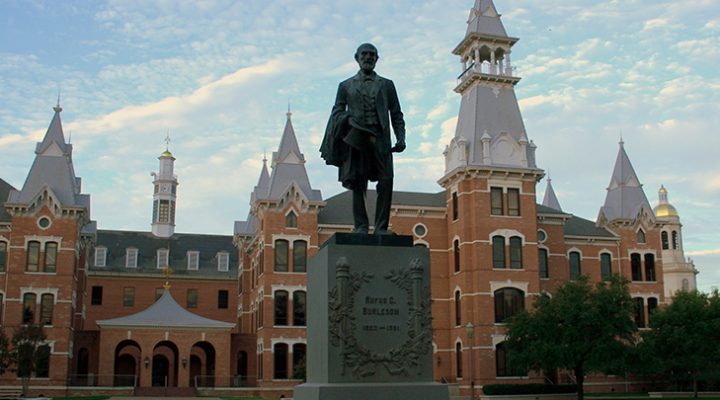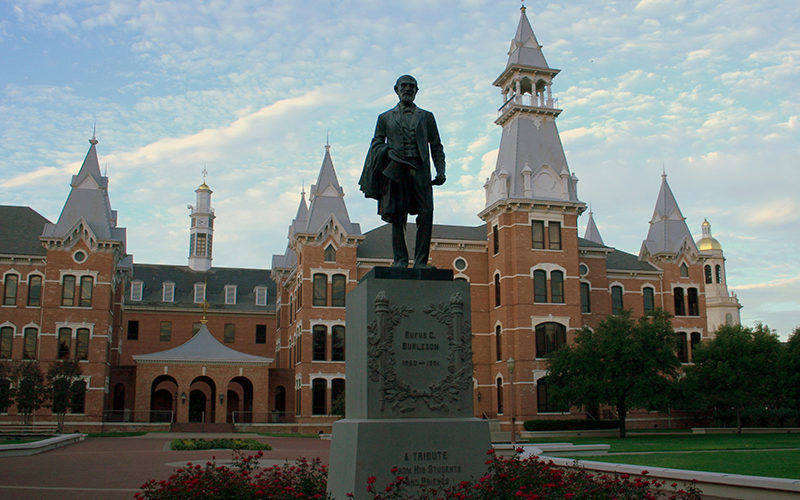Four and a half years of living in Fort Worth was long enough for me to gain a greater appreciation of how much the Burleson family name is revered in Texas.
I already knew this to be true in North Alabama, having grown up within a stone’s throw of Westview, the early-1800s mansion built by original Morgan County landowner and family patriarch Jonathan Burleson midway between Hartselle and Decatur. This same house, the birthplace of Rufus — a future president of Baylor University who baptized Gen. Sam Houston, and for whom an East Texas college for African Americans would later be named — is remarkably intact and still inhabited by descendants to this day. Current resident and historian David Burleson and his wife, Anne, have been (and are) longstanding pillars of the community.
Nearby is Hartselle’s historic F.E. Burleson School, named for a beloved local educator and patriarch of the mostly Methodist branch of Burlesons who remained in Alabama. Their Baptist relatives increasingly migrated westward but nonetheless left large historical footprints around here.
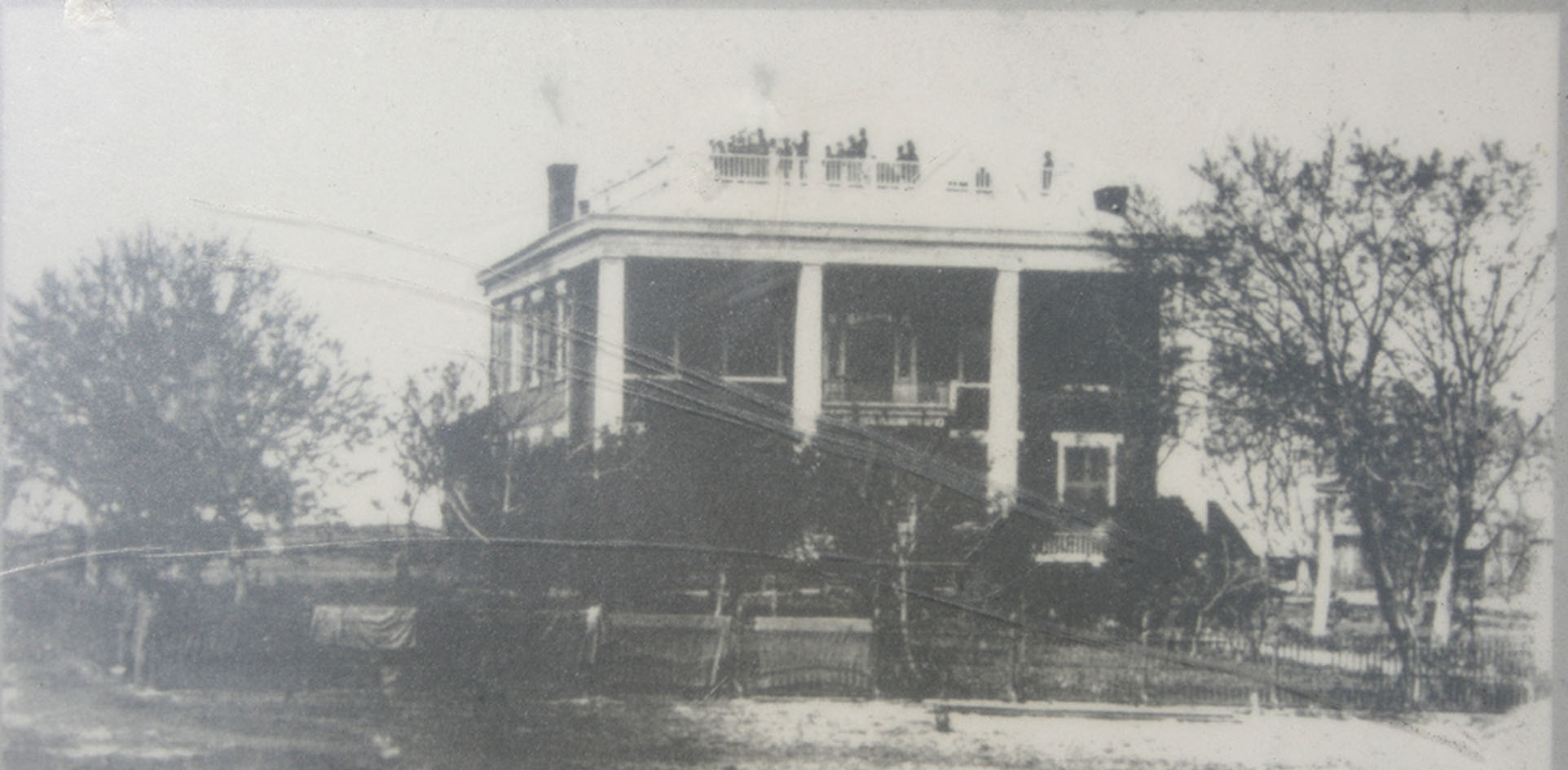
Federal Army Band gathers on roof of Burleson House in Decatur, Ala., for photograph supposedly taken April 1865 (Source: Historical Marker Database)
Consider, for instance, the Antebellum-era Burleson-Hinds-McEntire home in Decatur, which has been called “the most historic house in Alabama.” Its builder is believed to have been A.A. Burleson, a brother of Rufus and charter member of First Baptist Church in Decatur. According to local legend, it was within the walls of this home that Generals Grant, Sherman and others planned the Battle of Shiloh.
The A.A. Burlesons eventually relocated to Memphis and Arkansas. Meanwhile, Richard Burleson, another brother, served in nearby Limestone County as pastor of First Baptist Church in Athens before moving to Texas and becoming a vice president of Baylor himself. Still another brother, Dabney Burleson, was a charter member of First Baptist Church in Hartselle.
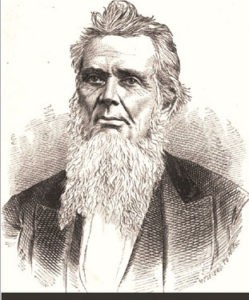
Rufus Burleson
Buried in an old file that includes the aforementioned trivia is a half-written article I began scribbling years ago. A well-intentioned plan was for it to eventually be submitted to Alabama Heritage magazine under its working title, “The Magnificent Burleson Family of Morgan County.”
Since then, to be sure, the “magnificence” of Rufus Burleson and other family members has been somewhat diminished, as evidenced by an announcement from Baylor leadership a while back that a campus statue of Rufus would be relocated away from the “Burleson Quadrangle” — which would likewise be renamed.
Less immediately clear was what, if anything, was planned for two nearby buildings, one of which bears the name of Rufus Burleson. The other one was named for his wife, Georgia Jenkins Burleson, whose own distinguished Baptist pedigree includes a relative named George W. Truett.
I must confess that initially I found such news a bit unsettling, having already been among thousands of other white, lifelong Southerners now (suddenly? finally?) trying to process the nation’s ongoing reevaluation of Confederate or segregation-era monuments.
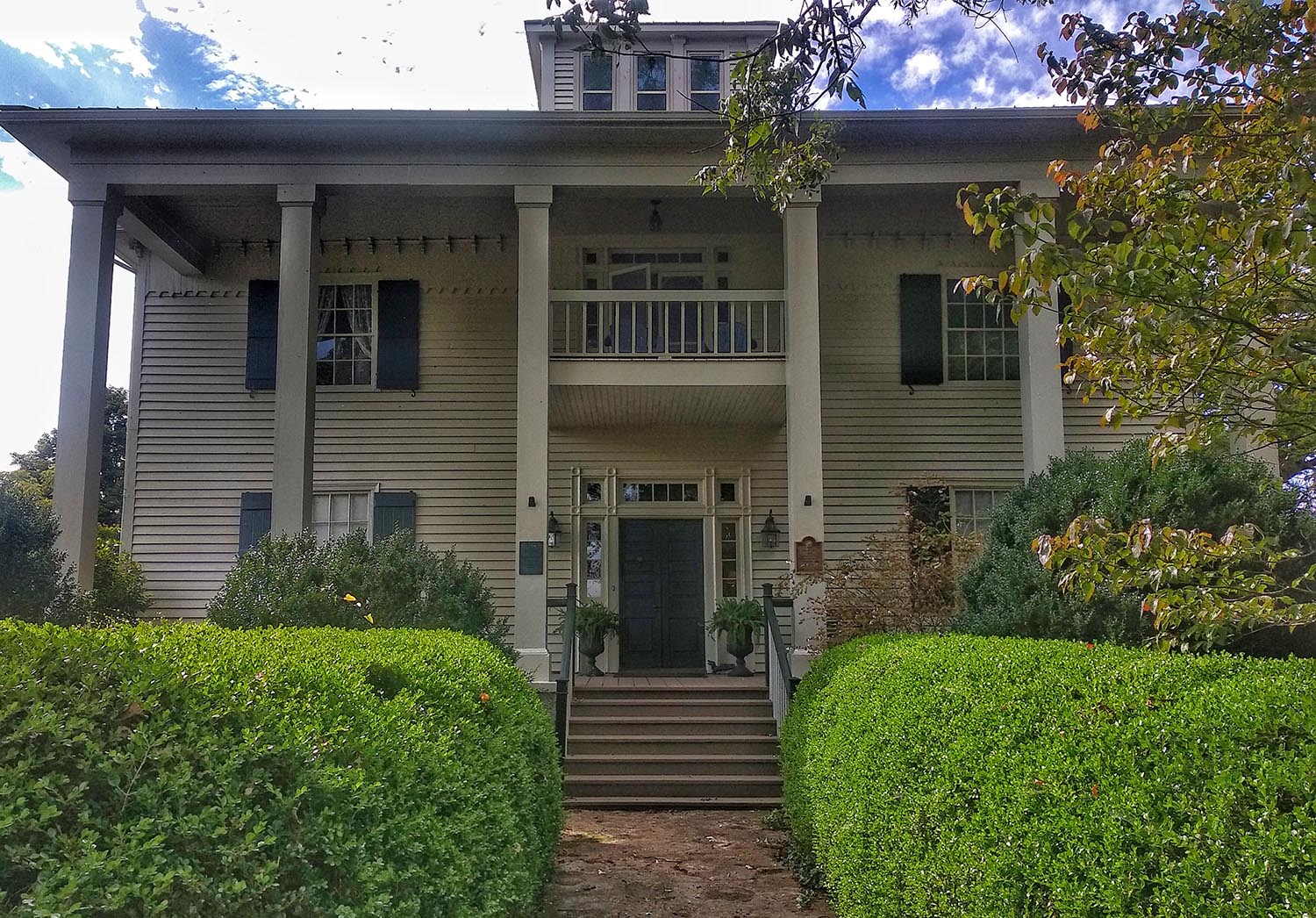
Westview Plantation, the Burleson home, was built in the 1840s near Burleson mountain in Morgan County, Ala. (Source: Wikipedia)
As a sixth-generation Alabamian but also a Christian, that journey continues to be a deeply personal and spiritual one. In years past, it truly never occurred to me that any of the Burlesons, much less my own far-less affluent ancestors, had been slaveowners. (One would think the name of Rufus Burleson’s ancestral home itself — Westview Plantation — might have been a clue.)
Now comes the announcement of a new book written by two Baylor professors that casts further aspersion on the sacred legacy of Rufus and other late 19th-century Texas Baptist leaders, all of whom allegedly tried to whitewash a scandalous series of injustices toward a Brazilian girl living in their own household. Readers also are confronted with the possibility that Baylor’s chief critic during those years — W.C. Brann, the bombastic, muckraking editor of The Iconoclast — should perhaps be reimagined as having been more of a prophetic Clarence Darrow than a tabloid bomb thrower (as “official” accounts have traditionally suggested he be remembered).
In contrast, note this almost reverent contemporary account written by Josephus Shackelford, “the dean of North Alabama historians,” after Rufus Burleson returned home in old age to preach at Mount Pisgah (now Flint) Baptist Church in Morgan County, where he and his siblings were baptized:
Perhaps Dr. Burleson has done more for the religious and educational advancement in Texas than any one man in the state. … His success is not the result of accident, but of the habits acquired in boyhood on the farm, and by following the precepts of a pious father. He never used tobacco, nor intoxicating drinks; was never in a theater, ball room, nor on a race ground; knew nothing of cards, billiards nor chess; he never swore but one oath and that in boyhood, and under sudden and great provocation.”
I interpret that last part to mean Rufus only cussed once; but he felt really, really bad about it afterward.
As we all prayerfully strive to “be the presence of Christ,” grow stronger in our faith, tolerance and understanding of social justice, or simply how best to practice the Golden Rule, human mentors will continue to alternately inspire and disappoint us. My best advice to myself is to remember the closing line of an introduction I wrote long ago for the published history of Morgan County Baptists: “May we learn from the mistakes and triumphs of our ancestors.”
Mark Ray is a longtime counselor, author and lay historian in Decatur, Ala. He previously served on the board of advisors for Truett Seminary at Baylor University.
Related articles:
Baylor professors unearth a sordid tale of 19th century whitewashing of sexual assault
Baylor, Baptists and slavery: A way forward | Opinion by Greg Garrett

